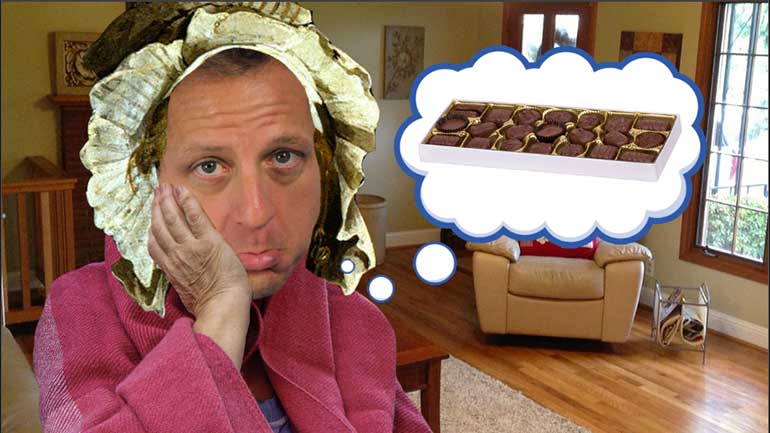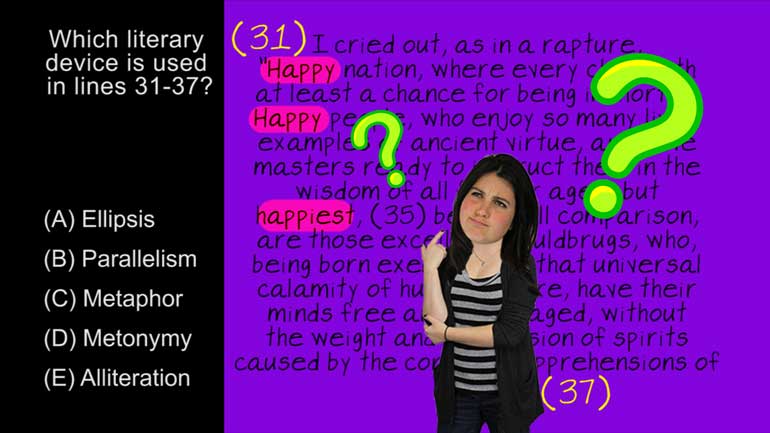ShmoopTube
Where Monty Python meets your 10th grade teacher.
Search Thousands of Shmoop Videos
Chemistry: 1.6 Repetition and Reliability 84 Views
Share It!
Description:
When sciencing, it's always important to make as few errors as possible. Especially the careless kind. Those errors can take your eyebrows. Today's lesson is about repetition and reliability to minimize the effects of such errors. On your results, not your eyebrows.
Transcript
- 00:04
when conducting an experiment repetition is important also
- 00:09
repetition is hugely important did we mention the repetitions a big deal like [Man writing on chalkboard]
- 00:14
well it bears repeating the reason is that if you only perform an experiment
- 00:18
one or two times there might have been some reason you got the results you did
- 00:22
other than those caused by your independent variable the more times you
Full Transcript
- 00:27
repeat an experiment the more you reduce the chances that your data will get too [Man repeating scientific experiment]
- 00:31
messed up there are three main types of errors that can contribute to skewed
- 00:36
results the first is a careless error you know all about carelessness you [Types of errors appear and house on fire]
- 00:41
learned that lesson last year during what your family likes to call the great
- 00:46
Christmas tree fiasco while careless errors can happen in the lab - maybe
- 00:51
something gets knocked over or spilled or maybe you wrote down the wrong number [Man spills over beaker]
- 00:55
when taking a measurement or maybe you wrote the right number but your
- 00:58
handwriting is worse than a monkey's and afterwards that you couldn't tell what [Monkey holding sheet of paper]
- 01:02
in the world that was supposed to be well the best way to guard against
- 01:05
making this sort of error is to be careful when P alert be focused and
- 01:09
don't swing your arms about wildly in the presence of glassware the second [Man spills glassware on the floor]
- 01:13
common type of error is the systematic variety you might be careful as all
- 01:19
get-out but if your equipment is screwed up somehow
- 01:21
if something's not calibrated correctly or if your thermometer thinks everything [Water boiling and person dips in thermometer]
- 01:26
is 45 degrees fahrenheit you've got a problem on your hands
- 01:30
repeating an experiment helps you to spot these types of errors at which
- 01:34
point you can fix your equipment or and preferably switch it out with something [Man gives equipment gift to scientist]
- 01:38
new bright and shiny finally there's always the possibility
- 01:41
of random errors maybe a draught of wind came along and subdued the flame of your [Wind travels to bunsen burner]
- 01:46
Bunsen burner a tad or maybe you've got a weird batch of a certain chemical that
- 01:51
was mixed with apple juice for some reason your lab partner is a bit of a
- 01:55
prankster after all anything unexpected or unaccounted for that might mess with
- 02:00
your results is a random error not much you can do about them sometimes on an
- 02:05
individual basis but if you're doing each experiment [Man pours into beaker and explodes]
- 02:09
multiple times you'll be able to throw out your bad data with the bathwater by
- 02:13
the way a science lab is an awful place to take a bath it's called an emergency
- 02:18
shower for a reason [Man taking an emergency shower]
Up Next
When you're about to marry the love of your life, not many things could stop you. However, finding out that your future hubby is keeping his crazy...
Related Videos
Here at Shmoop, we work for kids, not just the bottom line. Founded by David Siminoff and his wife Ellen Siminoff, Shmoop was originally conceived...
ACT Math: Elementary Algebra Drill 4, Problem 5. What is the solution to the problem shown?
AP® English Literature and Composition Passage Drill 1, Problem 1. Which literary device is used in lines 31 to 37?
AP® English Literature and Composition Passage Drill 2, Problem 1. What claim does Bacon make that contradicts the maxim "Whatsoever is delig...




